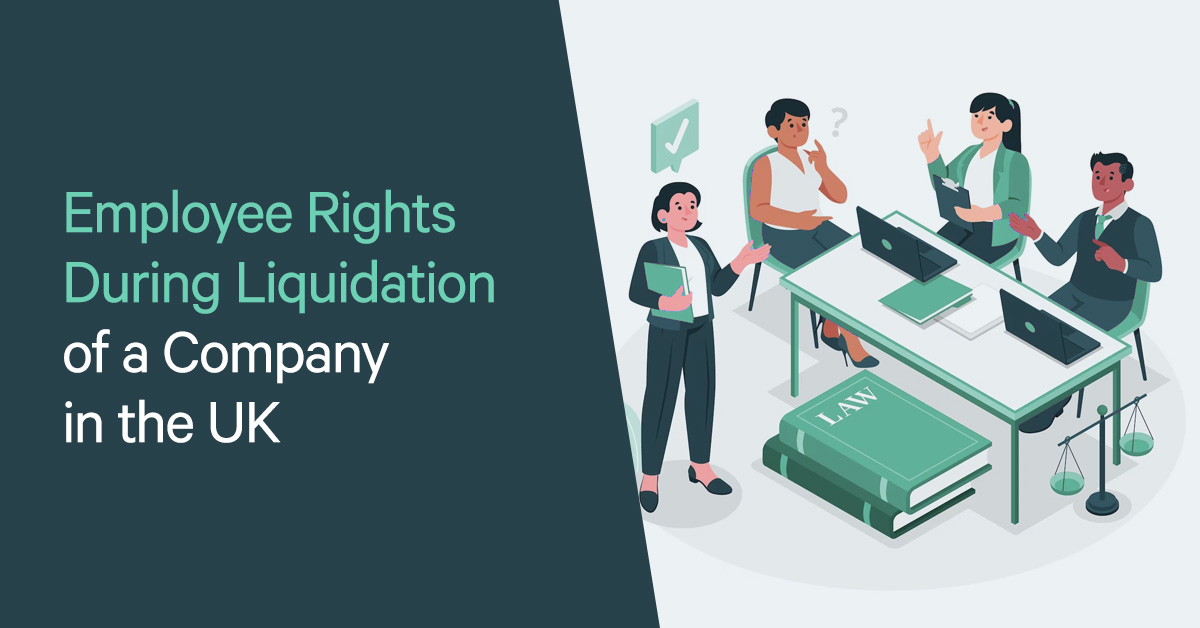What Happens to Administration Staff: Do Employees Still Get Paid When Company Goes Into Liquidation?
What Happens to Administration Staff: Do Employees Still Get Paid When Company Goes Into Liquidation?
Blog Article
The Influence of Company Liquidation on Staff Member Legal Rights, Payment, and Job Stability
In the realm of company dynamics, the dissolution of a company due to liquidation can cast a shadow of uncertainty over the destiny of its staff members. Understanding the complexities of exactly how company liquidation influences employees is essential for browsing the complexities that develop in such scenarios.
Legal Defenses for Staff Members
Lawful Protections for Staff members guarantee that workers' legal rights are protected and supported in the event of firm liquidation. These securities function as a critical security internet for staff members dealing with unpredictabilities due to their employer's economic problems. One basic defense is the Employee Change and Retraining Notice (WARN) Act, which needs companies with over 100 employees to provide development notification of a minimum of 60 days prior to a plant closing or mass layoff.
Additionally, the Fair Labor Criteria Act (FLSA) mandates that workers must receive their final paycheck promptly upon termination, including any kind of accrued vacation time or benefits. This regulation aims to avoid employers from withholding payment owed to staff members during the liquidation procedure. In addition, the Worker Retirement Income Protection Act (ERISA) safeguards workers' retirement funds by establishing criteria for personal pension and ensuring that these funds are protected, even in the event of a business's bankruptcy.
Influence On Compensation Packages
In the middle of business liquidation, the restructuring of settlement plans typically leads to considerable changes for workers. When a business goes into liquidation, staff members are encountered with the possible loss or decrease of different parts of their settlement packages, such as benefits, profit-sharing, and stock options. In most cases, outstanding repayments for overtime, unused trip days, or various other benefits may likewise be at danger because of the economic constraints encountered by the company during the liquidation procedure.
Moreover, the termination of work contracts throughout liquidation can lead to disputes over severance pay and various other forms of compensation that workers are qualified to under their arrangements or local labor legislations. Staff members may locate themselves in a precarious situation where they have to work out with trustees or liquidators to safeguard reasonable payment for their years of solution to the business.
Task Safety And Security Issues
During firm liquidation, employees typically deal with enhanced job security problems as the future of their placements becomes unpredictable. The prospect of shedding their work because of the closure of the company can create considerable stress and anxiety amongst workers. Task protection problems throughout liquidation are intensified by the absence of clarity relating to the timeline of the procedure, potential redundancies, and the general security of the organization.
Workers may stress regarding their economic security, profession prospects, and the accessibility of similar task opportunities out there. Uncertainty bordering the liquidation process can lead to reduced productivity, morale, and task fulfillment among staff members. Furthermore, the fear of task loss can impact employees' mental wellness and well-being.
Employers are urged to connect freely and transparently with workers throughout the liquidation process to resolve work safety concerns. Giving regular updates, using support solutions, and discovering alternate task choices can aid alleviate a few of the anxieties workers might experience during company liquidation. By prioritizing staff member wellness and keeping clear interaction, companies can alleviate the unfavorable influence of task safety issues during this difficult period.
Employee Cases and entitlements

Employees are commonly qualified to obtain unsettled earnings for a specified period before the liquidation, which might differ by nation. Additionally, redundancy settlements are usually available to staff members who are made redundant as a result of the liquidation procedure.
Approaches for Navigating Unpredictability
In times of firm liquidation, staff members can utilize calculated approaches to navigate via uncertainty and guard their civil liberties and privileges successfully. One critical technique is to stay positive and enlightened. Keeping up with the liquidation procedure, comprehending their legal rights under labor regulations, and seeking lawful suggestions if needed can equip workers to make educated choices. Additionally, networking with colleagues dealing with comparable situations can supply understandings and support throughout challenging times.
A tactical move for workers is to prioritize their monetary security. This can include exploring choices such as getting unsettled earnings via government schemes, understanding the hierarchy of financial institutions to evaluate the probability of receiving outstanding payments, and producing a personal budget to manage funds during the change duration. Furthermore, updating resumes, enhancing skills via training programs, and actively seeking choice work can help employees secure their future beyond the liquidated firm.

Final Thought
In conclusion, company liquidation can have considerable effects on staff member rights, settlement, and task security. Staff member issues about work security and compensation packages have to be attended to within the legal framework to guarantee fair therapy and suitable settlement.

When a company goes into liquidation, workers are encountered with the potential loss or decrease of numerous parts of their compensation bundles, such as bonus offers, profit-sharing, and supply choices.During business liquidation, employees often deal with enhanced work safety and security concerns as the future of their settings ends up being unpredictable. Giving do you still get redundancy if company goes into administration normal updates, using support solutions, and exploring different task alternatives can help reduce some of the anxiousness employees might experience throughout firm liquidation.In verdict, business liquidation can have considerable effects on staff member civil liberties, compensation, and work stability.
Report this page